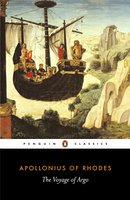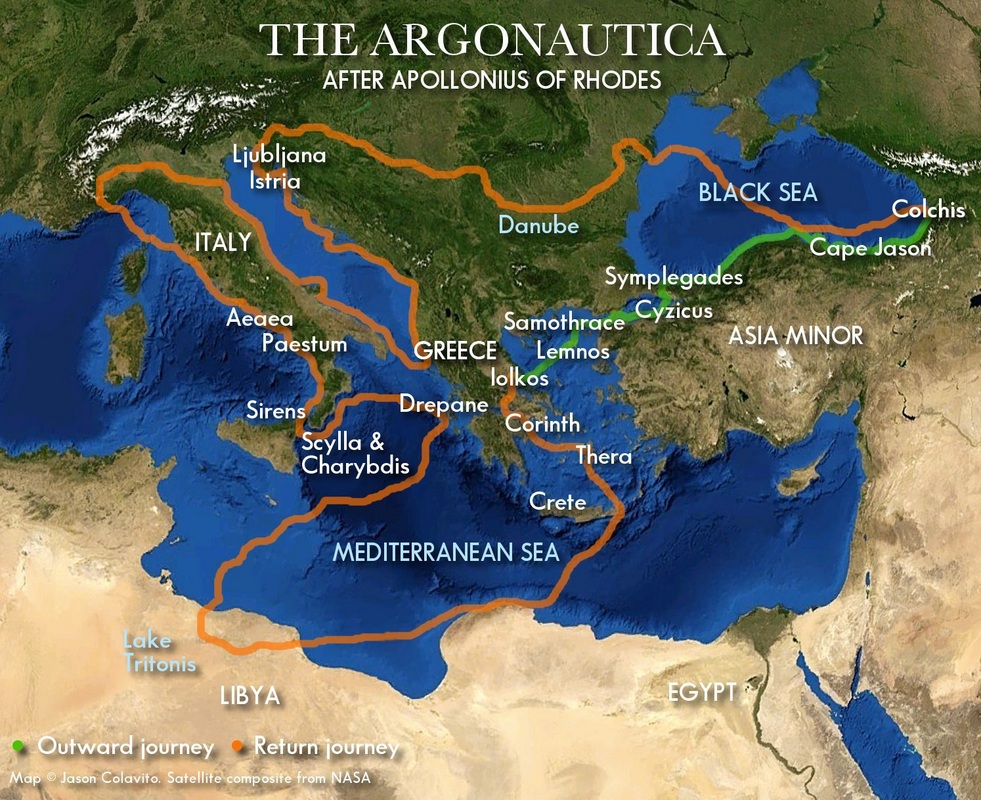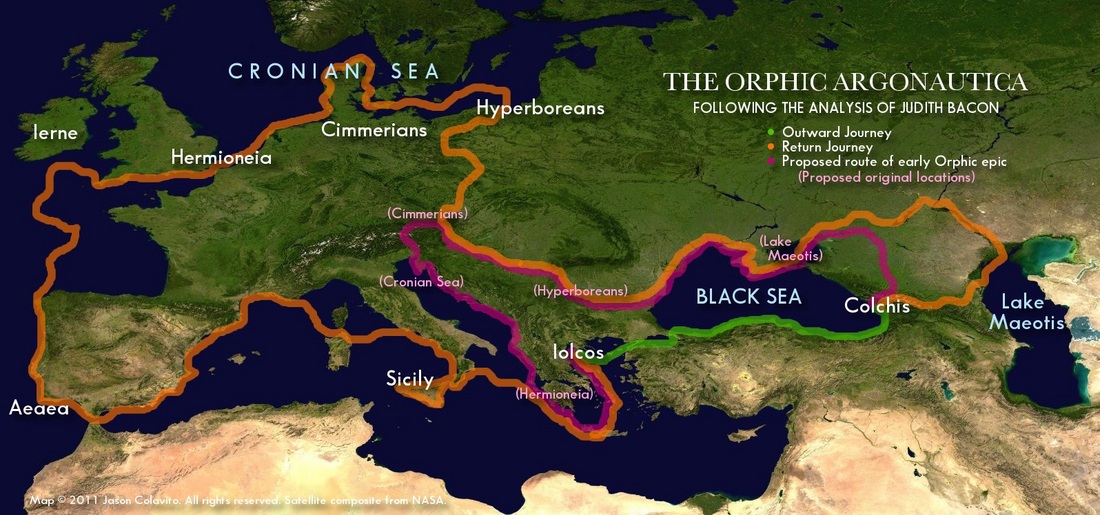
Well, maybe it isn't the case that the entire book is about people being slaughtered, but when you reach the end it certainly feels like it, with the last quarter of the story involving a huge revenge slaughter in the Hungarian king's home. In fact it appears as if, with the exception of a couple of people, nobody actually comes out of this story on top – and the thing is that other than being a bit of a pompous git, Siegfried didn't do anything wrong, and while revenge against his murderers may not be the best response, Kreimhild was entirely justified (in a certain sense) to seek justice for Siegfried's murder (and also the fact that she was pretty upset that Hagan took all of her treasure – it is was certainly a LOT of treasure – and dumped it in the Rhine).
Anyway, it wasn't all that hard to actually pick a book to read in Germany, particularly since I have this habit of reading a book that has come from whatever country I am visiting. Okay, that isn't necessarily easy for a lot of places (Singapore for instance, unless it is the Lonely Planet Guide to Singapore, but that doesn't technically count as a book), but when it comes to Germany, picking the Nibelungenlied (translation being 'the Song of the Nibelungens) was pretty much a no-brainer, especially since it completely slipped my mind the last time I was in Germany (though that was only for a couple of days, and even then I ended up reading Gunter Grass – I also have some Herman Hesse though since I only have one more day here I doubt I'll be able to get through Sidhartha – though I'll give it a shot).
Anyway, continuing with the theme, I found myself in a 19th Century Palace a few kilometres outside of Bonn called Schoß Drachenburg (which is located halfway up a mountain known as Drachenfels), and inside this palace there is a room known as the Nibelungenzimmer, and while there were chairs in the room, there was a rope between me and them so I couldn't actually sit down and read the book, so instead my brother took a photo of me standing up:

And here is a photograph of one of the paintings (though please forgive my photographic skills – they suck, though not as much as my French).

Anyway, enough of my travels and onto the book. A couple of years ago I saw this awesome miniseries based on the Nibelungenlied (the IMDB link is here), however having now read the book I have realised that while it was somewhat loosely based on the original epic (as was Wagner's opera, though since I have never seen it, nor know of the plot, I can't really comment), the story seemed to be somewhat different. The thing is that apparently Tolkien based a lot of his material for Lord of the Rings on this story, though as far as I am aware there wasn't any rings mentioned (though in other versions of the story a cursed ring actually plays a very big role). Also, a lot of the material that we are familiar with, such as Siegfried slaying the dragon and bathing in his blood, occur before the poem begins and are only relayed to us through a Hagen's tale.
Anyhow, the story is about how Siegfried comes to Burgundy and married Kriemhild (without ever seeing her, but it was traditional in the Middle Ages that the groom never sees the bride before the wedding night, which seems to be a tradition that has been passed down to us, that is the groom cannot see the bride in her wedding dress otherwise it will bring bad luck to the marriage). Gunther, the king, hears of how Brunhild of Iceland is seeking a suitor, as long as the suitor can defeat her in battle. However Gunther has no chance of accomplishing the feat, and gets Siegfried to do it while wearing a cloak of invisibility. After the wedding, Gunther discovers that he cannot consummate the marriage because Brunhild keeps on beating him up, so Siegfried once again does his stuff, but it is suggested that Siegfried also consummates the marriage on Gunther's behalf (despite the fact that he promised not to).
The story finishes off with Kriemhild and Brunhild having a row at the front of the church and Kriemhild insulting Brunhild by revealing the truth, and as a result it is agreed that Siegfried must die, so while on a hunting mission Hagan, a confidant of Gunther's kills Siegfried by throwing a javelin into his back, in the section that wasn't hardened by the dragon's blood because a leaf fell onto it while Siegfried was bathing. As a result, Kriemhild leaves and remarries, however for the rest of the book plots her revenge, which ends up in a huge massacre in her new home, and she also ends up meeting a rather nasty end.
This is one of those stories that literally contains everything – dragons, treasure, immortal heroes, and some incredibly bloodthirsty battles. Actually, the story of Siegfried is interesting because there is a reflection of Achilles' immortality – in fact as we are probably aware, Achilles was made invulnerable when his mother bathed him in the Styx, however because she held him by the ankle, that was the part that was vulnerable – and was also how he was killed (though there is no mention of Achilles' invulnerability in The Illiad). The other interesting thing is the similarities as to how the both died – Siegfried was killed when a javelin was thrown into his back, while Achilles died by having an arrow shot through his ankle (though how anybody could actually die by having an arrow shot into their ankle is beyond me, unless the wound became infected, and if that was the case then this would be a very painful way to go). In a way these attacks could be considered somewhat cowardly, based on the era, as people would fight up close and personal, and an honourable warrior was one who would fight in hand to hand combat. In the case of the Nibelungenlied, javelins were not used to kill people, they were used to hunt animals, however considering the nature of these two warriors, such an attack was probably the better way of being able to successfully taking them down.

The other interesting thing is the nature of the blood feud. There are plenty of movies about some guy who is angered by a bad guy and then goes out of his way to hunt down and kill them. I guess it is best summed up with Liam Neeson's line “I will look for you, I will find you, and I will kill you”. Okay, he was actually rescuing his kidnapped daughter, but it is still reflective of the nature of the revenge tale in out modern world – vengeance is justified, and nothing will happen to you if you will seek it (though this is not always the case, but it is certainly how Hollywood portrays it). This is not the case in our older literature – we see this is the case in the Nibelungenlied; Kreimhild certainly doesn't come out of it on top, or even in one piece – in fact everybody dies. I suspect that it has a lot to do with our modern perception of the world – if we are wronged then justice should be done, and if the authorities won't do it, then we should take it into our own hands.
In fact it is the nature of our litigious and rights based societies. First of all we never want to accept responsibility if we don't have to, and in fact we are brought up as being told that we are good. We are also conditioned to live in a comforted world, a world where if our house burns down then the insurance company will pay for it, or somebody else will. If we are injured then the first thing we do is look for somebody else to blame, despite the fact that it may have been through our own stupidity. In a way we should be looking back at these old epics and being taught that revenge doesn't always come out on top – in fact both sides end up loosing, particularly when a person's entire life is focused on seeking revenge, and seeking compensation for the perceived wrong that has been done to them. In any case, when we do consider the story, we must also remember that the characters aren't the most perfect examples of humanity, since they engage in lies, deceit, and one-upping of each other – I guess this is a prime example of our failings as humans, and that in the end, if we are left to ourselves, it is all going to end up in one bloody mess.


 Log in with Facebook
Log in with Facebook 













